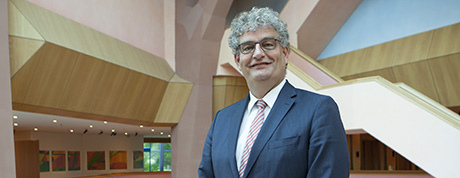Dutch Transporter Adapts to Changing Priorities
Dutch gas transporter Gasunie is now producing more low-calorie gas, through blending with nitrogen, than the low-calorie Groningen field itself. In response to the successive cuts in output, which have now been cut further to 21.6bn m³ from the October 2017 gas year, high calorie gas has to be blended with nitrogen to make it lower calorie – a cost which will at some point have to be passed on to consumers.
Gasunie produced 4bn m³ of this low-calorie gas in 2014, 16bn m³ in 2015 and 23bn m³ in 2016, Han Fennema told NGW on the sidelines of the Flame conference in Amsterdam May 9.
The reduction in output was the "sole" decision of the Dutch economics ministry, in response to worries that tremors – small on the Richter scale but occurring near the surface and damaging housing – were caused by the volume of gas produced and rapid fluctuations in response to changes in temperature. Gasunie was among the advisers to the government.
Gasunie is also looking at biogas injection into the grid, he said, conceding it was expensive but adding that the first steps would naturally be more expensive but become cheaper, as has happened with wind farms.

(Credit: Gasunie)
Domestic heating is likely to be more and more the preserve of heat pumps, possibly accounting for 70% of demand, with natural gas only used when temperatures are particularly severe. He said though that some “over-ambitious” politicians had talked of making towns entirely carbon neutral within ten years, without having a workable plan for that. “Why not use the pipeline infrastructure that is already there?” he said. “The government wants to make all sectors of the economy renewable.” Industrial heat waste could also be channelled into heating, where it was near housing, he said.
Other projects in the transporter’s in-tray are the merger of the Gaspool hub, owned by Gasunie Deutschland, but which is held up by the German regulator’s preference for first merging Gaspool and NetConnect Germany; simplifying the capacity booking process by merging the Title Transfer Facility with the Balgzand-Bacton Line (Gasunie owns 60%, the other 40% split equally between Belgian Fluxys and German Uniper); and adding reverse flow capacity through the BBL line, which, he said, was always on the agenda. "We are always looking at ways to better serve customers," he said. It was built to ship gas from the Netherlands to the UK so only virtual reverse flow is possible.
But he said no more gas transport infrastructure was on the agenda.
William Powell



